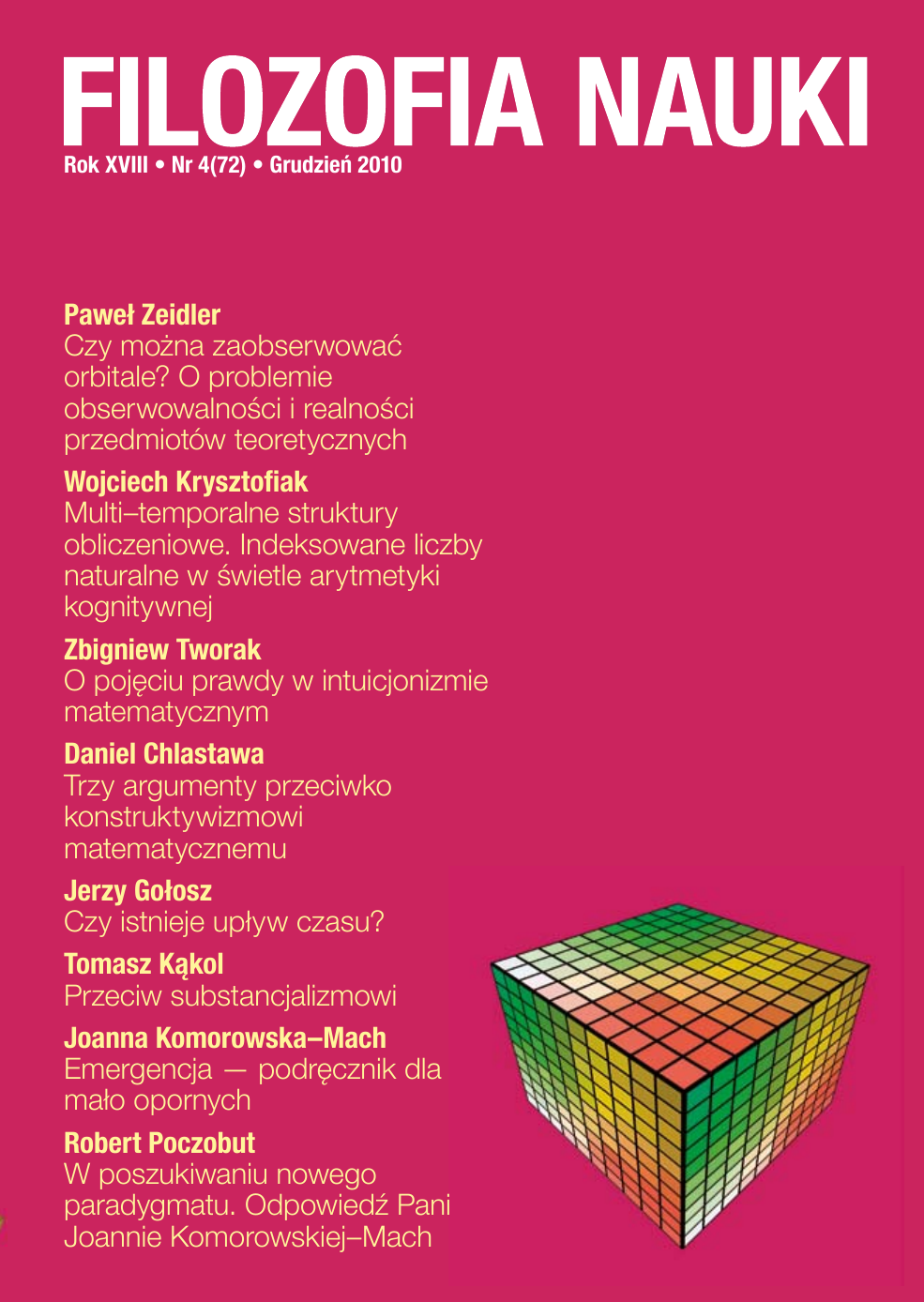Three Arguments Against Mathematical Constructivism
Keywords:
constructivism, intuitionism, classical mathematics, realism, anti-realismAbstract
This paper contains a criticism of mathematical constructivism, i.e. the class of views in the philosophy and foundations of mathematics according to which only constructive notions and methods of proof should be allowed in mathematics. Three main arguments are deployed against such view and its philosophical background. Firstly, an argument from pluralism: constructivism often appeals to intuitive evidence as the root of mathematics, effectively excluding large parts of classical, ab-stract mathematics. But appeals to «intuition» are utterly subjective and unstable, which results in multitude of incompatible constructivist systems of mathematics and makes any criticism toward classical mathematics as «non-constructive» unsubstanti-ated. Secondly, an argument which shows that epistemological arguments, deployed by many constructivists against intelligibility of classical mathematics, are unsound, and moreover, consistent appeal to such arguments leaves constructivists in no position to avoid the menace of ultrafinitism. Thirdly, it is argued that constructivism faces a dilemma whether to consider mathematical truth as what is actually proved, or what is provable, and that this dilemma is unsolvable in a satisfactory way, because the first horn of the dilemma is highly counter-intuitive or absurd, and the second one is impossible to square with constructivist views.Downloads
Published
2010-12-01
How to Cite
Chlastawa, D. (2010). Three Arguments Against Mathematical Constructivism. The Philosophy of Science, 18(4), 77–95. Retrieved from https://fn.uw.edu.pl/index.php/fn/article/view/622
Issue
Section
Articles















 Filozofia Nauki/The Philosophy of Science | ISSN 1230-6894 | e-ISSN 2657-5868
Filozofia Nauki/The Philosophy of Science | ISSN 1230-6894 | e-ISSN 2657-5868